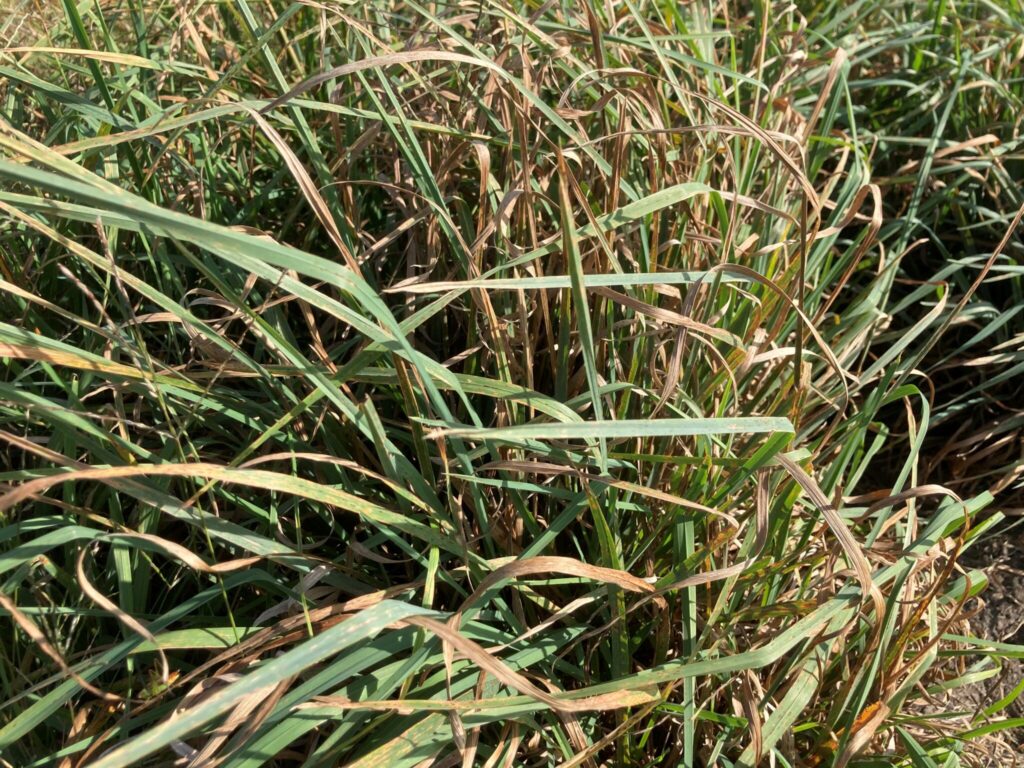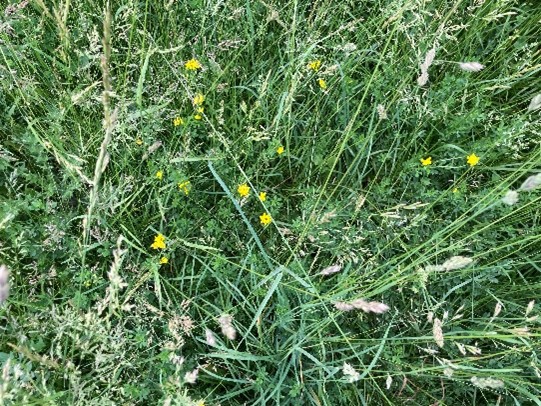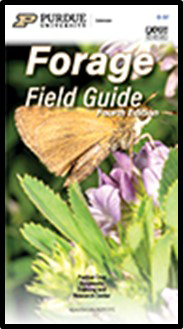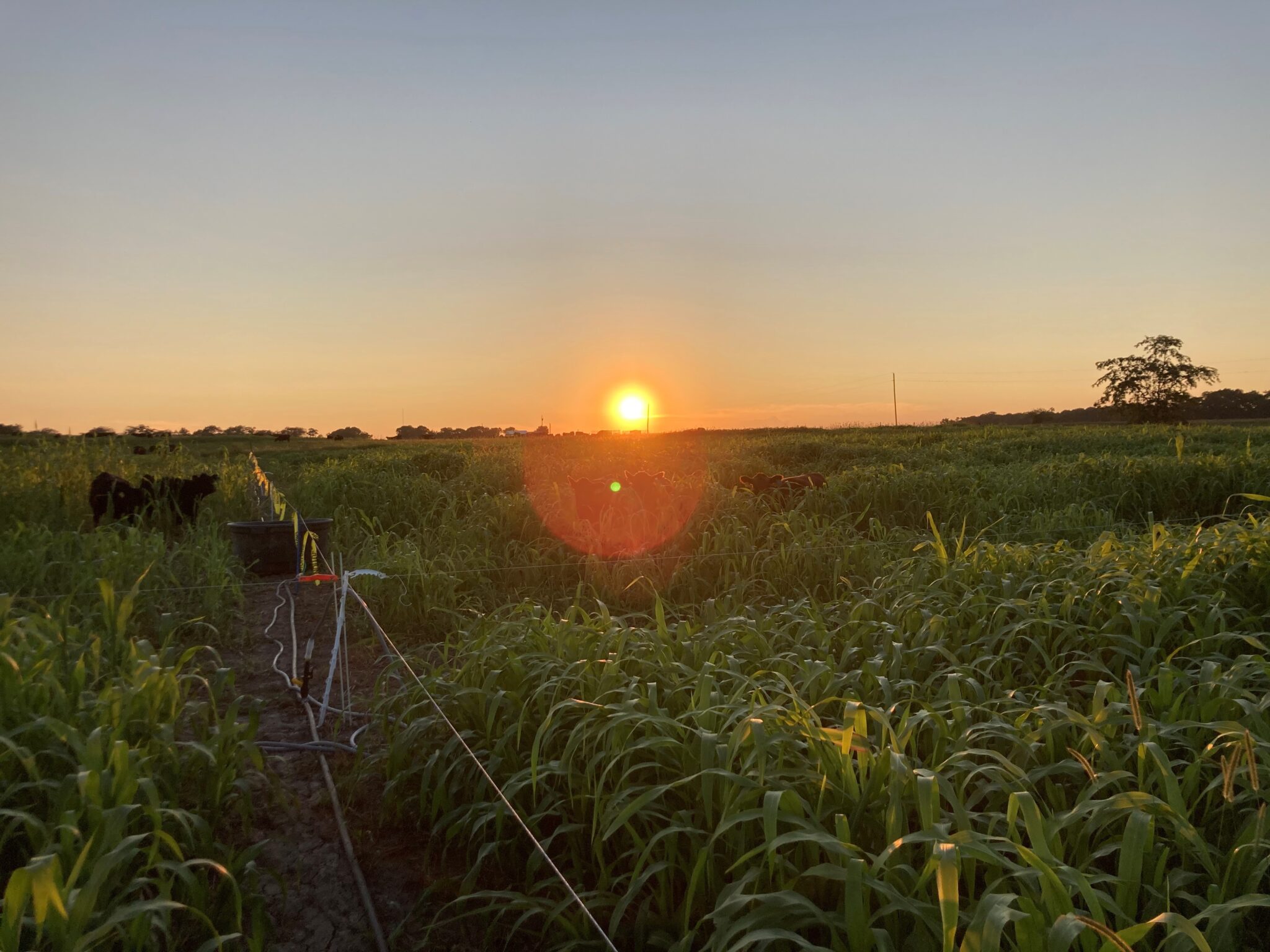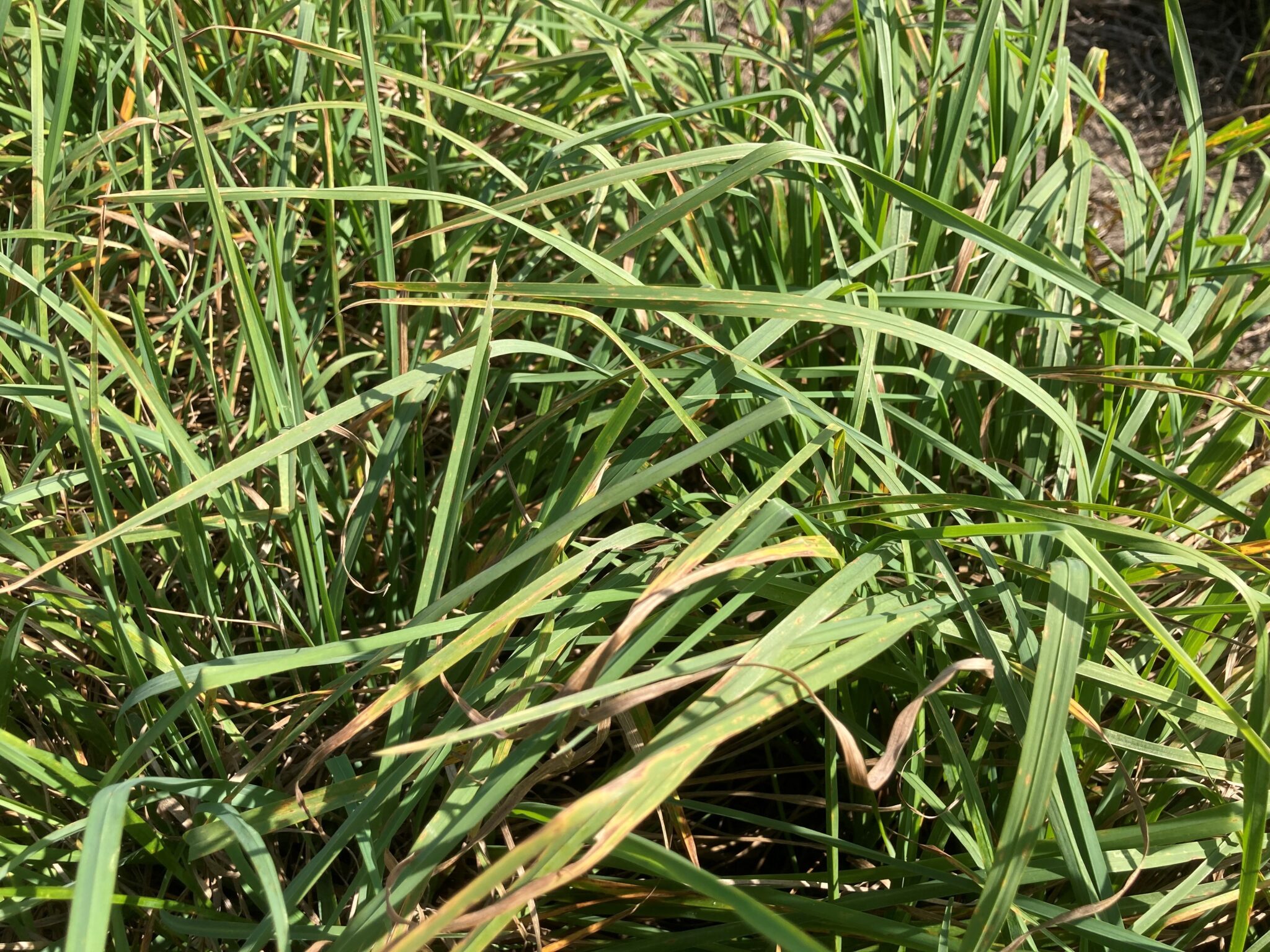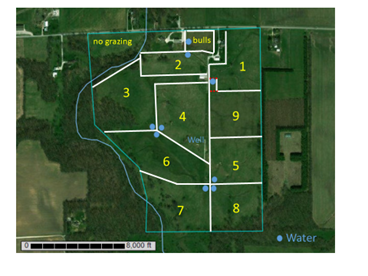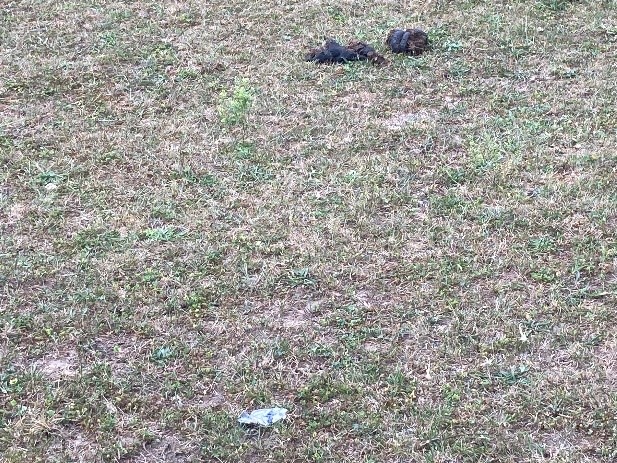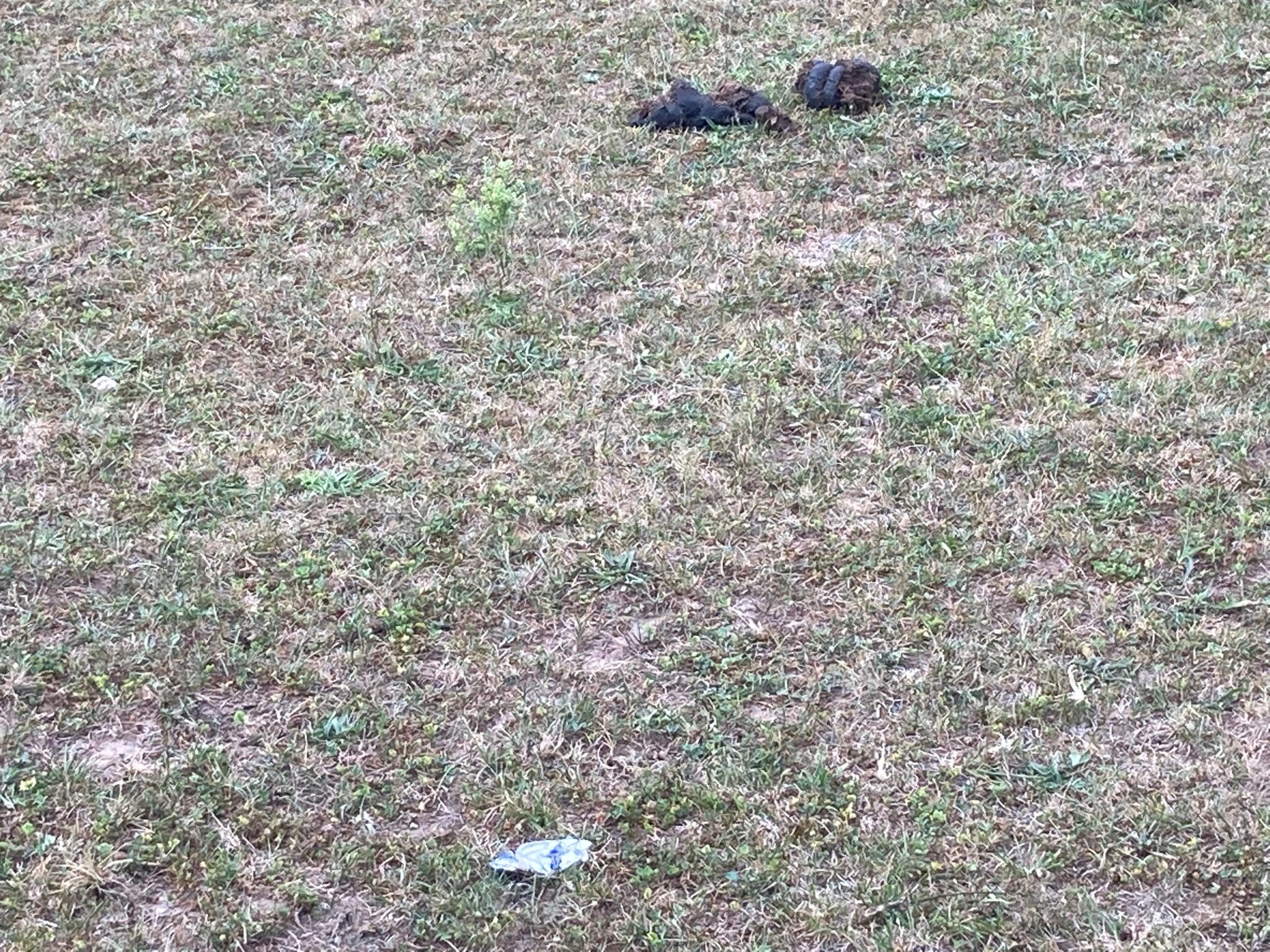
The weather this past week has been hot for June and little to no rain is projected to occur into the coming week . The following are considerations to heed to improve forage growth and inventory of stored feed for ruminant livestock and equine if the forecast holds true.
• Inventory current forage resources and routinely determine how much more forage, other than what you have at time of assessment, might be needed to get to spring grazing in 2025. If forage inventory continues to be low despite a return for more usual rainfall, strategize a plan to avoid the stress of an immediate crisis. Keep in mind that hay purchase can be expensive if the purchase is delayed until late winter. The following link has many points of consideration. (Beef Management Practices: When Forages are in Short Supply Because of Drought).
• Scout pasture for weed species present and develop a control plan if they are competing with desired forages and/or are poisonous concerns. An excellent resource for purchase is the 2024 Weed Control Publication. After selecting potential herbicides to control weeds of concern, read full labels for details. The following website is a resource about potentially common toxic plants in Indiana (Toxic Plants (purdue.edu).
• While scouting for weeds, evaluate if cool-season grass/legume or cool-season grass pasture growth is less than 4 inches in height. If it is, feed stored forage in a sacrifice lot/paddock to livestock until pasture growth is at least 8 inches tall (An aside – Many pastures look more like golf putting greens ). A full bite of forage is the goal; not nibbles. Plants need recovery after use, just like we need recovery after hard days of work.
• If soil tests have not been done on pasture or hay fields, get the task accomplished so the proper amount of lime and fertilizer can be applied. Grass-only pasture and hay fields will respond to nitrogen fertilizer, especially if none was applied in late winter or early spring and moisture is no longer limiting growth. When submitting the soil samples to the laboratory, provide name of where the soil was probed, potential yield, and forage types. Preferably, sample by soil type or grid and cropping history to a depth of 4 inches on already established forages. The NRCS- USDA Web Soil Survey is a very useful resource in learning about the soils on your farm. (Web Soil Survey – Home (usda.gov)
• If you do not use a rotational grazing system, take time to consider putting one into practice from this point forward. The advantages of a rotational grazing system as compared to a continuous grazing system are:
o Recovery time for forages results in better plant health
o Longer grazing system
o Less hay fed
o Improved nutrient recycling from feces and urine
o Reduced spot grazing (Spot grazing is grazing of forage regrowth and avoidance of other forage in the pasture)
o Opportunity for those that harvest their own hay to make it on a portion of the pasture acreage where it can be safely done in the spring.
Take time to read the information in this link about improving pasture management. Management-Intensive Grazing in Indiana (purdue.edu
• If winter wheat is part of your farm enterprises, an immediate doublecrop seeding of sudangrass, sorghum-sudangrass, or pearl millet after grain harvest should be considered if forage resource is limiting. These crops can be grazed, made into traditional chopped silage, or ensiled as baleage. Hay can be an option if an extended dry period after cutting occurs to get to a safe moisture content (less than 18 percent in large round bales). The prussic acid concern with use of sorghum-sudangrass and sudangrass at freeze time can be managed with planning.
AY-378-W — Managing the Prussic Acid Hazard in Sorghum (purdue.edu)
Reduce the Fear: Managing Prussic Acid in Sorghum, AY-400-WV – YouTube
Consider brown midrib hybrids/varieties (BMR) if improved digestibility is ideal for the livestock being fed. Teff is another forage option if hay is the desired harvest type. If seeding is delayed until mid-to late-August, a good option for fall grazing is seeding a combination of spring oats and forage turnips. Spring oats alone can be harvested has a stored forage, too.
• If the winter feeding area is currently growing unpalatable plant growth, get the weeds under control and seed one of the forage types mentioned in the previous bullet point.
• Scout alfalfa fields for the insect potato leafhopper and follow through with a control plan if the economic threshold population is exceeded. This pest can significantly reduce yield if a potato leafhopper resistant alfalfa variety was not used and the population is high. Control needs to occur before damage is obvious (potato-leafhopper_forage.pdf (purdue.edu) and (E-220.pdf (purdue.edu)).
Let’s hope that gentle rain without storms occurs in the coming weeks and that cooler temperatures prevail. That likely won’t be how weather unfolds, but doing nothing to make a forage program better is definitely not a wise plan.
